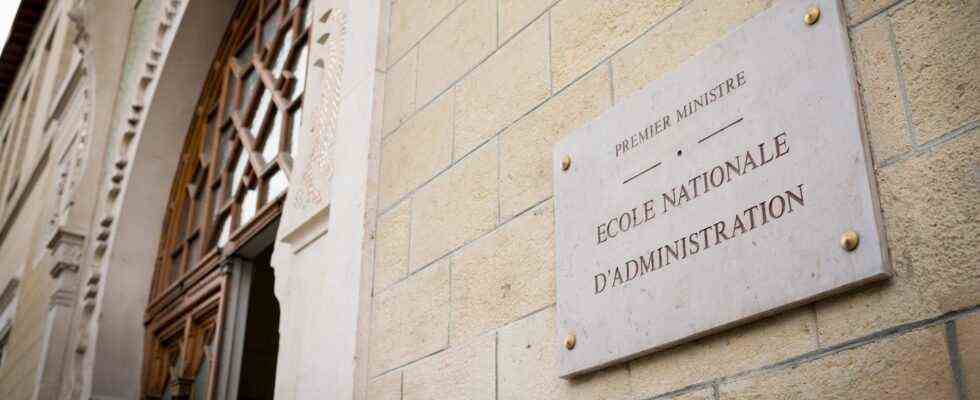The entrance to the National School of Administration (ENA), in Paris on February 12, 2020. – Clément Follain / 20 Minutes
One year from the presidential election, it is a reform that must be implemented, according to the Elysee, before the end of the five-year term. To respect this short schedule, Emmanuel Macron will speak this Thursday by videoconference in front of several hundred senior state executives on the reform of the senior civil service.
This intervention will take place on the occasion of the State Managerial Convention organized by Matignon which will bring together prefects, ambassadors, heads of central administrations, presidents of major bodies such as the Council of State, the Court of Auditors, rectors, etc.
“Offer the French a closer, more efficient public service”
This meeting with Prime Minister Jean Castex aims to “review the public transformations desired by the president and implemented by the government since the start of the five-year term with a view to offering the French a closer, more efficient public service, more transparent and more benevolent, ”explained the Elysee.
It will also detail the main lines of the ordinance on the reform prepared by the Minister of Transformation and the Civil Service Amélie de Montchalin which must be adopted before June 7 after its consideration by the Council of Ministers in May. The text includes new measures on the recruitment, training and careers of the senior civil service, “whose essential role, especially in times of crisis, will be reaffirmed”, according to the Elysee.
The social elevator has broken down
On February 11, during a trip to Nantes, Emmanuel Macron insisted on the need to open the access routes to prestigious administration schools, such as the ENA, to young people of modest origin so that more “no kid in our Republic says to himself:” it is not for me “”. He then drew up a gloomy observation of the French “social elevator”, which “works less well than 50 years ago” because mobility “is very low”.
“Attractiveness is our major subject, so we want to propose a positive reform,” said the Ministry of the Civil Service. “If we do not make an urgent reform, young people will no longer take the competitive exams,” we explain, pointing to the division by three of the number of candidates entering the 23 schools of the senior civil service. last years. The objective is also to bypass the guarded hunts and the rents of situations in the large bodies like the Council of State or the Court of Auditors, underlines an official. Among the pillars of the reform are the obligation of mobility, the emphasis on “evaluation” and the importance of continuing training for “the possibility of having several careers”.

